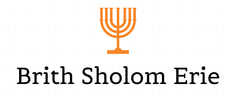|
The upcoming holiday of Shavuot is weird, man. It's one of the three pilgrimage festivals, but unlike Sukkot and Passover which are eight days long, it has only two days. While Sukkot is principally oriented around the essential mitzvah of building and dwelling in a sukkah, and Passover has the mitzvah of avoiding Chametz and eating matzah, Shavuot has no key mitzvah. Even the name 'Shavuot' isn't indicative of the holiday at all: it's a reference to the counting of seven weeks from Passover to the holiday of Shavuot itself - as if we called the Super Bowl 'the game that concludes the 16 weeks of the NFL season.' The name pays no attention to the other reason we observe the holiday - as a celebration fo the giving of the Torah at Mt. Sinai. Like I said, weird.
To that, Rabbi Levi Yitzhok of Berdichev has an answer. The holiday is a celebration of the giving of Torah, for sure. It's also an opportunity to do the standard festival holiday observance of reflecting upon the days of the temple and the priesthood and the bringing of offerings to Jerusalem. But for Levi Yitzhok, Shavuot is also about the celebration of completion, a ceremony we call a 'siyum' - 'conclusion'. Much like when we finish a tractate of Talmud, or a birthday even, a siyum is an opportunity to pat ourselves on the back for an accomplishment in the past, like the completion of a book or having finished another trip around the sun. Shavuot is a marker that we counted the omer, each day, seven days a week, for seven weeks, and we are patting ourselves on the back for reaching this auspicious occasion. Shavuot, then, is not about the 'now' of the holiday on that day. It's about all the days leading up to it, and all the effort of counting the Omer each night. The holiday on a larger scale is a reminder of the old adage that you get out what you put in. Counting the omer each night culminates in a celebration for the achievement of counting the omer, much as a college graduation is not just the celebration of the passage of four years but rather a celebration of all the hard work a person does to get there. We should look back at times to celebrate the great moments in our lives, but specifically when those great moments are the product of our own hard labors, our hustle, and our drive. We must remember to celebrate in our lives, but we must also do the hard work in order to merit those celebrations. - Rabbi Mark Asher Goodman
0 Comments
Leave a Reply. |
Rabbi's BlogRabbi Mark Asher Goodman is the spiritual leader of Brith Sholom Jewish Center in Erie, PA. These are a collection of thoughts and writings since he joined the community in Erie. For more of his past writings, click here. Archives
October 2020
Categories |

 RSS Feed
RSS Feed